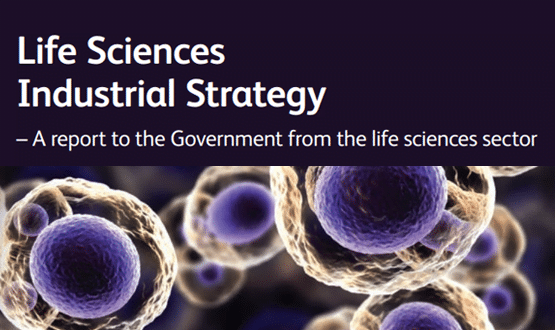Use AI and simplify data access, says government-commissioned report
- 18 September 2017

The use of artificial intelligence (AI) in UK healthcare should be increased, e-prescribing made mandatory, and researcher access to datasets simplified, a government-commissioned report has suggested.
Professor Sir John Bell – author of the Life Sciences Industrial Strategy, which was launched on 30 August – said the paper constituted an “ambitious” vision.
“[It] sets out proposals for how the UK can continue to capitalise on its strengths in the sector, both to encourage economic growth and to improve health outcomes for patients,” he argued.
Central to the strategy is the proposed creation of “two to five” regional data innovation hubs. These would each cover three to five million people and contain “comprehensive and secure data in primary, secondary and tertiary care as well as social care and community data”.
The report suggests such information is one of the most important resources held by the UK health system.
As a result, “the development of platforms to enable deidentified health data to be appropriately used to research and develop technologies would be of great benefit to patients in the system”.
Bell also proposes creating the Health Advanced Research Programme (HARP). This is envisioned as a means through which industry, the third sector and the NHS can collaborate on healthcare transformation.
The document suggests AI would be a key focus for the scheme. “AI is likely to be widely used in healthcare and it should be the ambition for the UK to develop and test integrated systems that provide real-time data better than human monitoring and prediction of a wide range of patient outcomes,” the strategy argues.
Meanwhile, making e-prescribing mandatory would serve to give the NHS better data on what has been prescribed, allowing the development of outcomes-based pricing for drugs.
The strategy is the first response from a specific sector to the government’s industrial strategy green paper, which was published in January.
While health secretary Jeremy Hunt used the life sciences strategy’s launch to announce £14 million worth of funding to support 11 medical technology research centres, it currently only represents proposals rather than formal policy.
Sir John said he was looking forward to working with government to consider his recommendations, “including those that can be taken forward as part of an ambitious sector deal”.
In his keynote speech at last week’s Health and Care Innovation Expo, Simon Stevens indicated NHS England were backing Bell’s proposals.
Access to deidentified patient data has been a controversial area. NHS England’s care.data project intended to bring together anonymised information from across health and social care. The idea was that the data would be used by researchers to assess performance and identity possible new treatments.
The scheme was ultimately scrapped after a series of delays and controversy, primarily centred on concerns around consent and how the information might be used.
In July, an independent review into DeepMind raised concerns over how Google’s artificial intelligence wing had used data from its collaboration with Royal Free London NHS Foundation Trust.




2 Comments
Before we bring in another buzz word that gets third party suppliers rubbing their hands can we get current things in order first. Patient online needs sorting the rollout has been terrible, E-RS basically choose n book re-badged and has the same issues, e-ps needs rolling out fully. Regions buying system WillyNilly.
Current system & data are poor its not ready for AI. Seems the Gov hear about something and push it wasting a load of money, look at video consultation and the ETTF fund.
What is the end goal, what does the Gov think AI will achieve?
AI will improve quality and reduce some of the burdens on the NHS, it is just a question of time. However, without data you can’t achieve any of that.
As you say patient online and many GPs attitude to it is nothing short of a disgrace but this is old and out dated tech.
We have to think about enabling individuals with their data to use with innovation and technology such as AI.
Given the requirement of GDPR to give data back in a machine readable format we must make the APIs available to patients and stop pretending that portals and data downloads offer any significant benefit / value other than for some basic transactions.
It’s no longer 2000 and if we want real benefits and a revolution such as AI we have to first liberate the data.
Comments are closed.